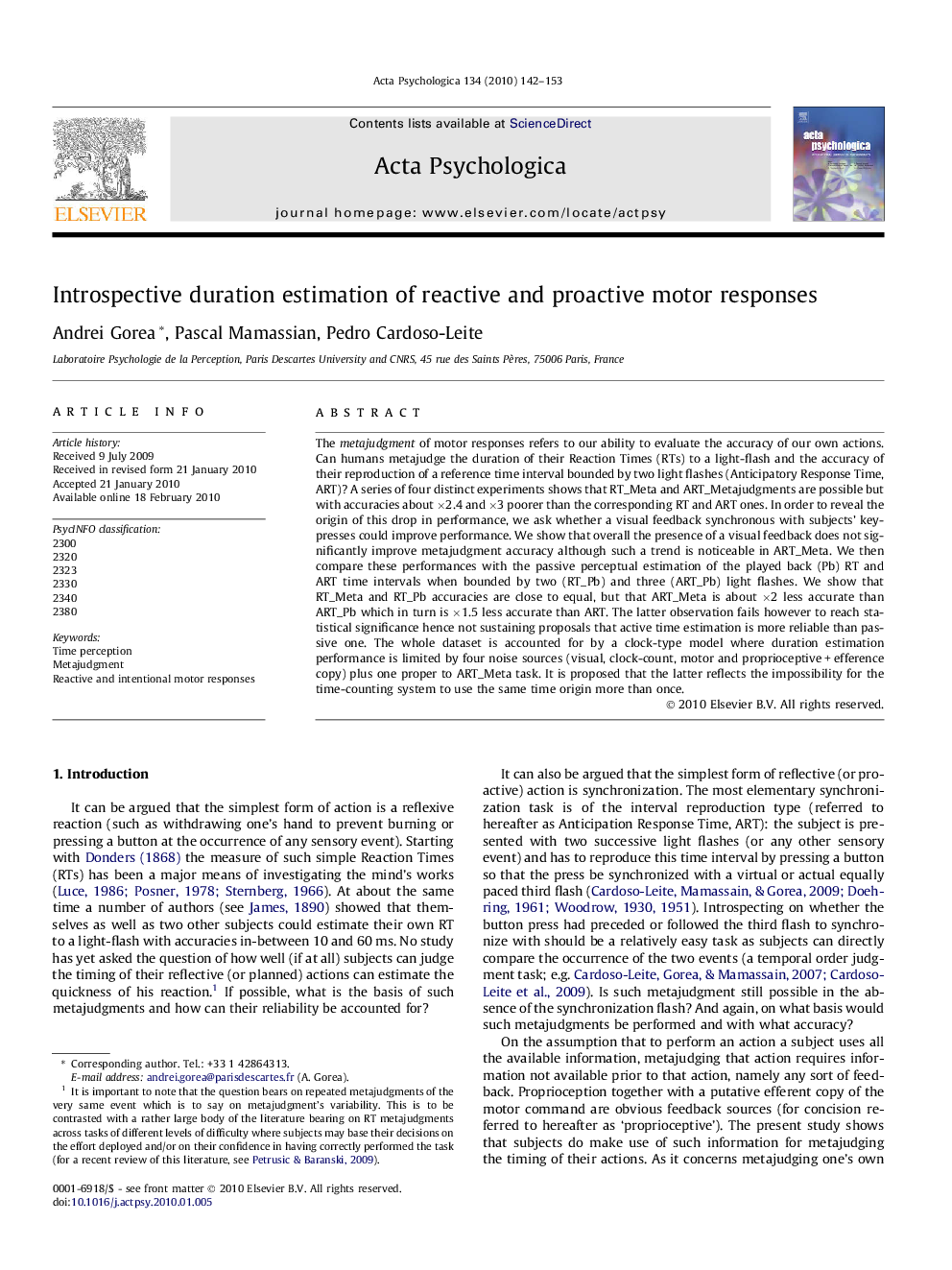| Article ID | Journal | Published Year | Pages | File Type |
|---|---|---|---|---|
| 920214 | Acta Psychologica | 2010 | 12 Pages |
The metajudgment of motor responses refers to our ability to evaluate the accuracy of our own actions. Can humans metajudge the duration of their Reaction Times (RTs) to a light-flash and the accuracy of their reproduction of a reference time interval bounded by two light flashes (Anticipatory Response Time, ART)? A series of four distinct experiments shows that RT_Meta and ART_Metajudgments are possible but with accuracies about ×2.4 and ×3 poorer than the corresponding RT and ART ones. In order to reveal the origin of this drop in performance, we ask whether a visual feedback synchronous with subjects’ key-presses could improve performance. We show that overall the presence of a visual feedback does not significantly improve metajudgment accuracy although such a trend is noticeable in ART_Meta. We then compare these performances with the passive perceptual estimation of the played back (Pb) RT and ART time intervals when bounded by two (RT_Pb) and three (ART_Pb) light flashes. We show that RT_Meta and RT_Pb accuracies are close to equal, but that ART_Meta is about ×2 less accurate than ART_Pb which in turn is ×1.5 less accurate than ART. The latter observation fails however to reach statistical significance hence not sustaining proposals that active time estimation is more reliable than passive one. The whole dataset is accounted for by a clock-type model where duration estimation performance is limited by four noise sources (visual, clock-count, motor and proprioceptive + efference copy) plus one proper to ART_Meta task. It is proposed that the latter reflects the impossibility for the time-counting system to use the same time origin more than once.
